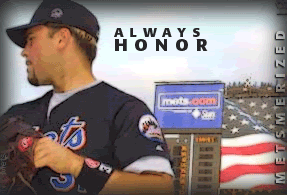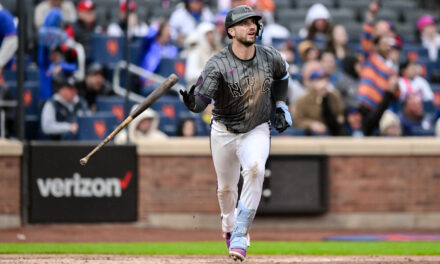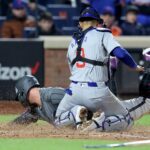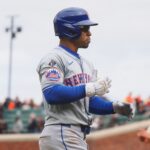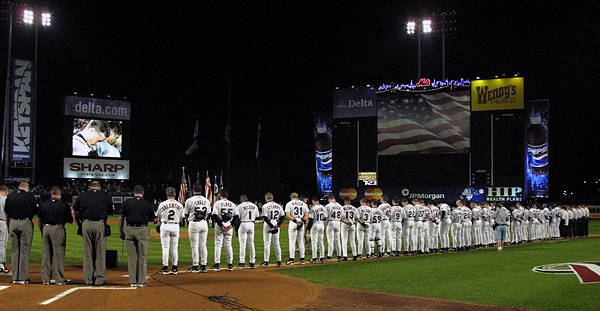
The Mets. The Braves. Late September. This is what a pennant race is all about. It was the 148th game that season and the defending NL Champion Mets were surging. We’d cut the lead from 13 ½ to just 5 ½ and now the first place Braves were coming to town. At least, that’s what a pennant race should be about.
But on this September night there was not the usual electricity in the air that accompanies a crucial ballgame. Instead there was a sadness. A feeling of fear, uncertainty, confusion. Tears were mixed with anger. Disbelief intertwined with vulnerability. As the Mets took the field, just eight miles away, in what was becoming known as Ground Zero, rescue workers were sifting through debris and clearing away rubble through the still billowing smoke.
For the first time in our nation’s history our mainland was attacked. For the first time in our nation’s history American citizens, regular people, were targeted by a cold hearted enemy. For the first time in our nation’s history, the game of Baseball was put on hold due to terrorism.
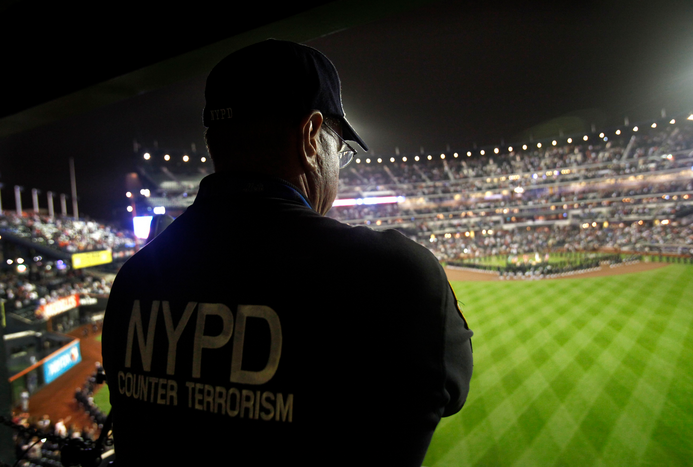
The Mets/Braves game on September 21, 2001 was the first sporting event that would ever be held in NY in a Post 9/11 America. From this point forward everything would be different. President Bush and others urged us to go back to our everyday life. The best way to show these gutless terrorists that a few planes could not destroy America or alter democracy was to get back to our daily routine. But how could we? Everything was different.
During the pre-game memorial, PA announcer Roger Luce exclaimed, “We now return to our National Pastime.” Easier said then done.
In spite of the Mets fighting long time rivals Atlanta in a huge series at Shea, there was a calmness in the air. Mets and Braves players exchanged hugs on the field before the game. The expression on the faces of Mets players was not one of determination to defeat Atlanta but instead, eyes were glossy, teary. Swallowing was a little harder. Diana Ross sung God Bless America before the game and Liza Minelli brought the Shea faithful to their collective feet with a powerful rendition of New York, New York. Even our mayor, avid Yankee fan Rudy Giuliani, was cheered at Shea.
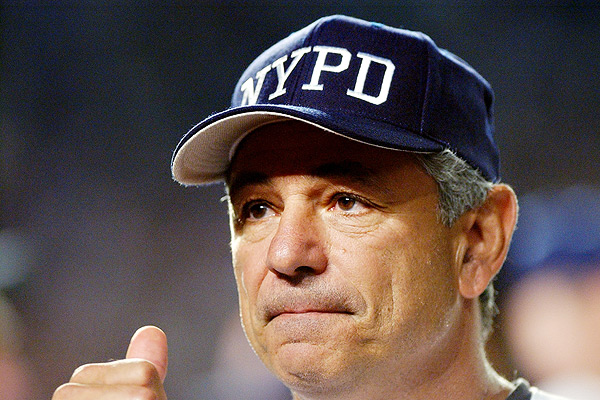
For years, going to a Mets game meant hearing planes. We fans grew so accustomed to that familiar roar the sound of the jet engines didn’t even faze us anymore. This night, however, we glanced skyward when we heard planes overhead.
The game on the field seemed almost unimportant. We all questioned our own importance, our own place in life and for the first time realized that our shores were not impenetrable. These things only happen somewhere else, in a foreign country thousands of miles away. This only happens to strangers, not to family and friends, not to New York’s finest.
In the overall scheme of things, in the big picture, with the future of our country being questioned, did it really matter who won a meaningless baseball game in Flushing? Did anyone really care if Barry Bonds would break McGwire’s HR record? Was the farewell tour of Cal Ripken jr truly that important?
For seven and half innings Shea was eerily quiet. Sure, there were a couple chants of ‘Lets Go Mets’ that broke out but clearly, New York was not ready to cheer. All of that, however, ended in the bottom of the eighth.
Trailing 2-1 and with pinch runner Desi Relaford on first, Mike Piazza stepped to the plate.
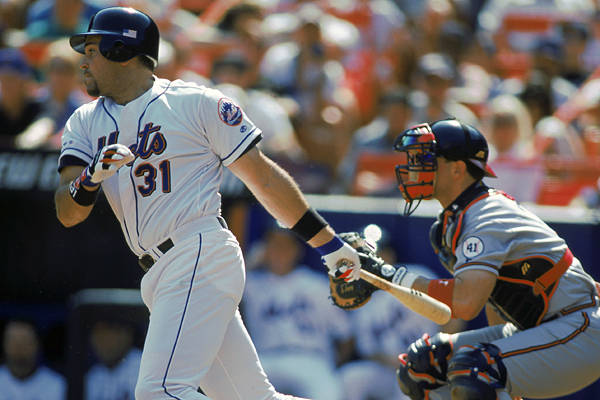
Piazza hammered an 0-1 offering from Steve Karsay into the night. A monstrous blast that reached the camera platform beyond the wall in straight away center field. Hollywood couldn’t have scripted this stuff. Like Roy Hobbs, Piazza circled the bases. The only thing missing was the fireworks from the blown out light tower.
The Mets won 3-2 and cut the Braves lead to 4 ½. But the game meant more then that.
Americans had been urged to return to their every day life. It seemed a daunting task—until Piazza hit that shot. Cheers were heard in New York for the first time in over a week. Joyous screams filled the air from Flushing to downtown Manhattan. Things would now return to normal—slowly, but at least the days of darkness were ending. There was a light on the horizon. Once again, Barry Bonds’ HR chase DID matter. Cal Ripken’s farewell DID mean something.
But more important, the simple fact that a guy hit a baseball 400+ feet signified that New York was back. Baseball was back. And yes, America was on its way back.
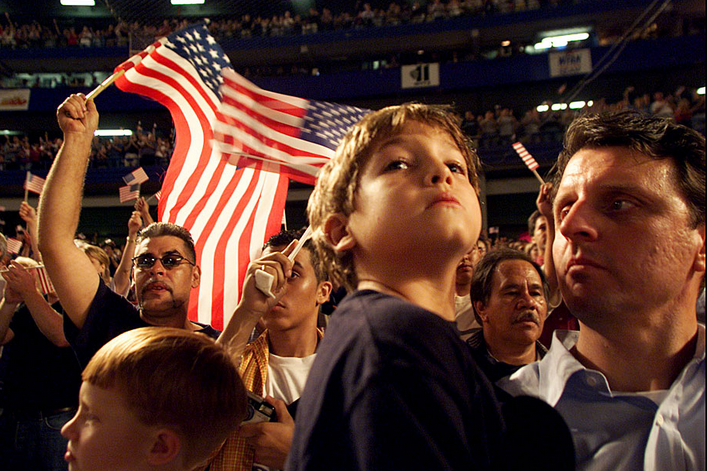
Although one can argue there’s never been a bigger Home Run in team history, Piazza’s blast reached far beyond the box score of one game. It carried with it a significance that extended beyond Shea. It meant something, not just to a team, but to an entire city. An entire city now began to heal. And Mike Piazza gave us the medicine we needed.
In lower Manhattan rescue workers worked feverishly to clear the rubble of what had once been the most significant part of our world famous skyline. The symbols of American capitalism and the most symbolic office buildings in our city had been destroyed. Two buildings, 110 stories each that reached to the heavens, now lay in a smoldering pile of twisted metal and broken glass and within it, almost 3000 Americans.
A few miles to the north of where the WTC once stood another monument of a different kind also once stood. This one was called The Polo Grounds. Just 12 days after Piazza brought a city back from its knees, October 3, 2001 marked the 50 year anniversary of Bobby Thomson’s famous HR that handed the pennant to the NY Giants over the Brooklyn Dodgers.
Unlike Thomson the hit by Piazza did not clinch the pennant and send a team to the World Series. However, in the same tradition of Thomson, Piazza’s HR carried great meaning, both on and off the field. In more ways then one, it was yet another ‘Shot Heard ‘Round The World.’

